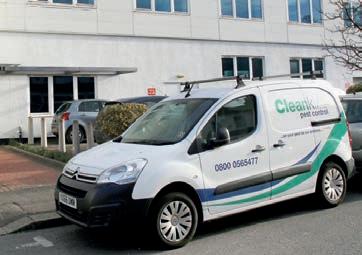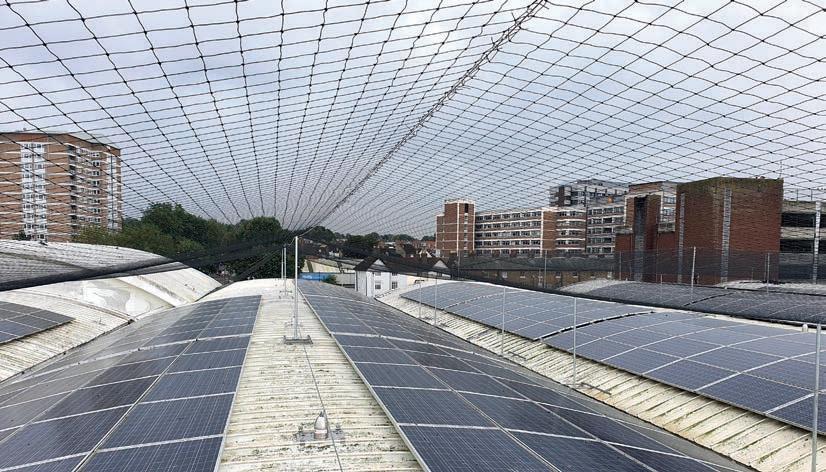
5 minute read
Pain in the neck
As a musculoskeletal physiotherapist, I see a variety of injuries such as back pain, frozen shoulders, sprains, strains and tears.
However, with more people working from home during the pandemic – and with many organisations not ready to facilitate this change – we are seeing an increase in patients with pain in their lower and upper back and neck, inflamed wrists, elbows and hip tendons. This is because of poor posture and prolonged sitting.
Not having ergonomic office equipment has led people to work from their beds, couches or chairs that do not support their posture while working. So they started experiencing more pain in the neck, lower back and upper back.
Many use kitchen tables as desks, but dining chairs are lower than office chairs and non-adjustable, increasing pressure on tendons/nerves and caused back and neck problems. Moreover, people were less active during the pandemic, increasing other long-term health risks such as cardiovascular diseases, diabetes, high blood pressure, cancer, depression and anxiety.
Maximise your temporary set-up
The first step is adjusting an improper workspace to mitigate risks of injury. Equipment such as adjustable tables and chairs, laptop raisers, ergonomic PC peripherals are critical. It’s crucial that employers take appropriate steps to support their remote employees just as they would in an office setting.
In the interim, people might: ● Use an ironing board as a table because the height can be adjusted; ● Place laptops on a pile of books to raise the screen to eye level; and ● Adjust chair heights using cushions or try to create a footrest for better posture.
Note: these solutions are not a longterm substitute for a proper home working set-up.
Employers can help remote workers by: ● Launching wellbeing programmes such as physical activity challenges; ● Encouraging walking meetings; and ● Reducing the duration of meetings so employees can step away from their desks. their team’s physical, mental and emotional wellbeing; 2 Arrange workshops about exercising, sleep, nutrition/hydration and stress management to build awareness of core musculoskeletal and mental health issues; 3 Carry out workplace audits to ensure work culture, office facilities and remote work infrastructure support employees; 4 Conduct employee assessments to understand employees’ musculoskeletal disorders as early as possible; and 5 Provide access to virtual or face-to-face physiotherapy sessions to help employees get support quicker.
Having a dedicated budget for employee wellbeing and making it a key pillar of the workplace and HR strategies is critical to reduce sickness absences and presenteeism, thereby boosting productivity and staff retention.
Organisations will find it helpful to partner with a corporate wellness provider to support employees’ wellbeing.
CORPORATE PHYSIO
We should take a holistic approach to wellbeing, understanding the interconnectedness between physical, mental and emotional health, says Kubra Senol Hamid
Out of hours
Your workstation is one consideration, but so too are your health behaviours. Start with regular physical activity. Exercise is incredibly important for improving your posture, overall physical and mental wellbeing, and quality of life. Aim for 150300 minutes of moderate physical activity a week as well as muscle strengthening exercises twice a week. Other factors to consider: ● Sleep for at least seven hours a night; ● Eat a balanced and healthy diet, avoiding unhealthy snacks; and ● Drink enough fluids.
Additionally, prioritise social connection. Loneliness inhibits human flourishing and can have similar impacts on wellbeing and longevity as obesity or smoking. Meeting with friends and relatives, helping others and having conversations with new people can help people feel socially connected.
The employer’s role
KUBRA SENOL HAMID is a chartered physiotherapist and co-founder C | P | W, a corporate physiotherapy and wellbeing provider

Go to cleankill.co.uk or call 0800 056 5477

MAINTENANCE CONTRACTS ARE VITAL WHERE BIRD NETTING IS USED
When netting is damaged birds can get tangled and trapped, resulting in them getting injured or starving to death.
There are many different solutions for discouraging pest birds and using netting is one of them. We can’t stress enough how important it is for the netting to be maintained.
There was a recent example of birds getting trapped in netting at a supermarket. It was not only distressing for the birds themselves, but horrific for shoppers. In addition, the supermarket faced prosecution.
All wild birds, including pigeons and gulls, and their nests are protected under the Wildlife & Countryside Act 1981 (as amended). It is an offence, except under licence, to intentionally kill, injure or take any wild bird.
Animal Welfare Act
There is also the consideration that if the birds are considered to be ‘under the control of man’ (for example, as a result of having been captured or confined – such as becoming trapped in netting), then an offence could be ideal solution. Cleankill has a team of expert handlers and Harris hawks that are proving extremely effective at deterring pigeons and gulls from roosting and nesting in a wide range of settings such as warehouses, industrial parks, and blocks of flats particularly throughout London and the South East.
Pigeons – or ‘flying rats’ – carry diseases and nearly all pigeons carry bird mites, which are tiny spiderlike creatures that feed off the bird and make humans itch and scratch. Pigeon fouling and nesting material also provide a home for many other insects such as clothes moths, carpet beetle, mealworm beetles and various fly species. Dry fouling creates airborne bacteria affecting anybody who may be susceptible to asthma and other breathing difficulties.
Cleankill offers a specialist bird control service, from the initial survey and specification through to the final proofing solution. As registered waste carriers, Cleankill can carry out fullscale removal of bird fouling, as well as contaminated goods and furniture, from infested properties.
Pest controllers from Cleankill are horrified to regularly come across large buildings where bird ne ing is installed but no one is maintaining it, says Paul Bates, managing director of Cleankill Pest Control
committed under the Animal Welfare Act, which specifies the duty of care conditions that must be applied to any trapped animal.
With summer on the way, now is the time to make sure your property is protected from nesting birds and ensure you have a contract with pest control experts such as Cleankill.
As the days get warmer, birds will start to look for places to settle such as outside ledges and exposed pipework. Their droppings will collect on the floor below causing an unsightly and dangerously slippery mess.
Natural bird control
As well as netting there are many techniques available such as birdfree gel, sprung-wire systems and bird spike repellents. Or, for natural bird control, Harris Hawks are the
PAUL BATES MD of Cleankill Pest Control










